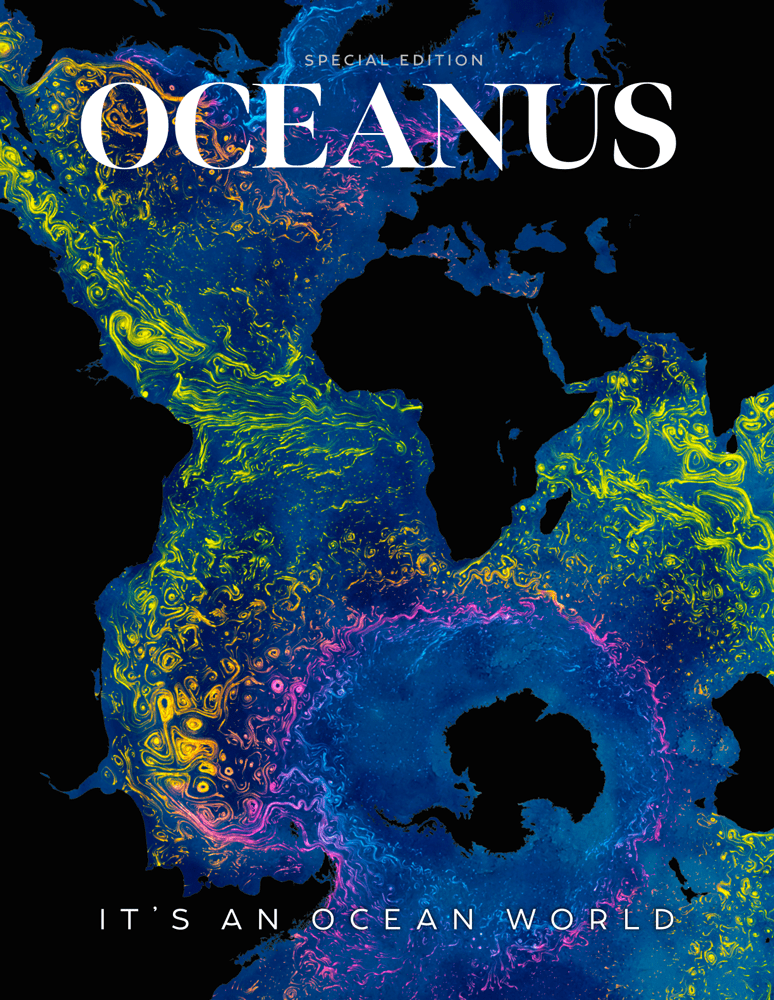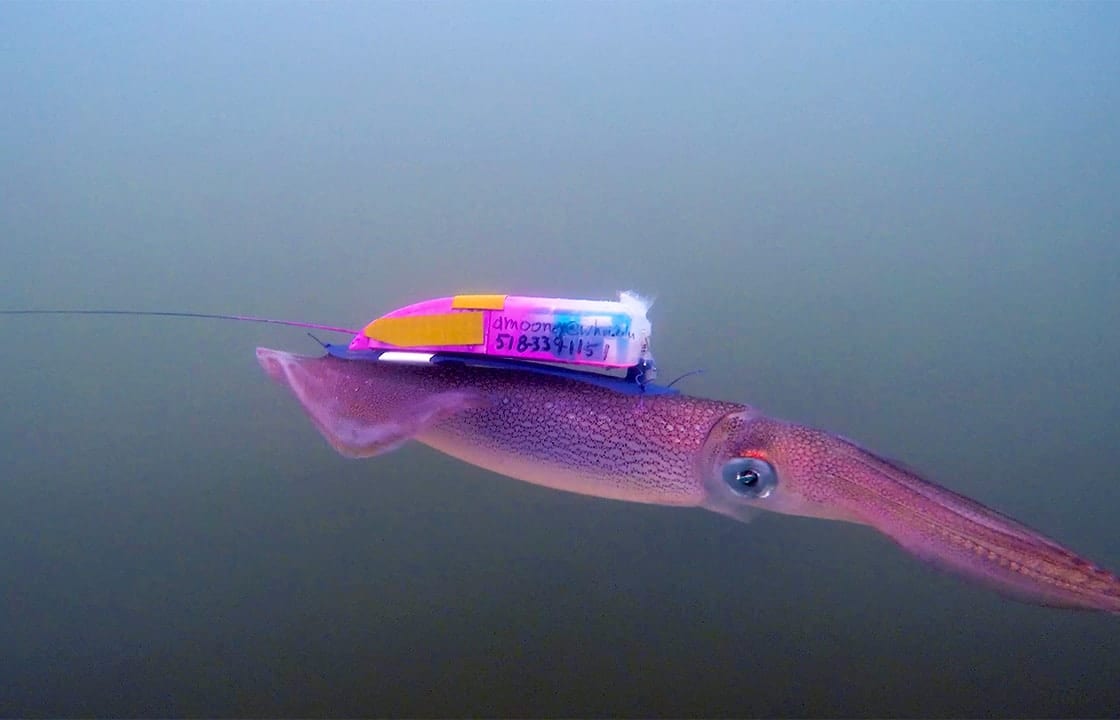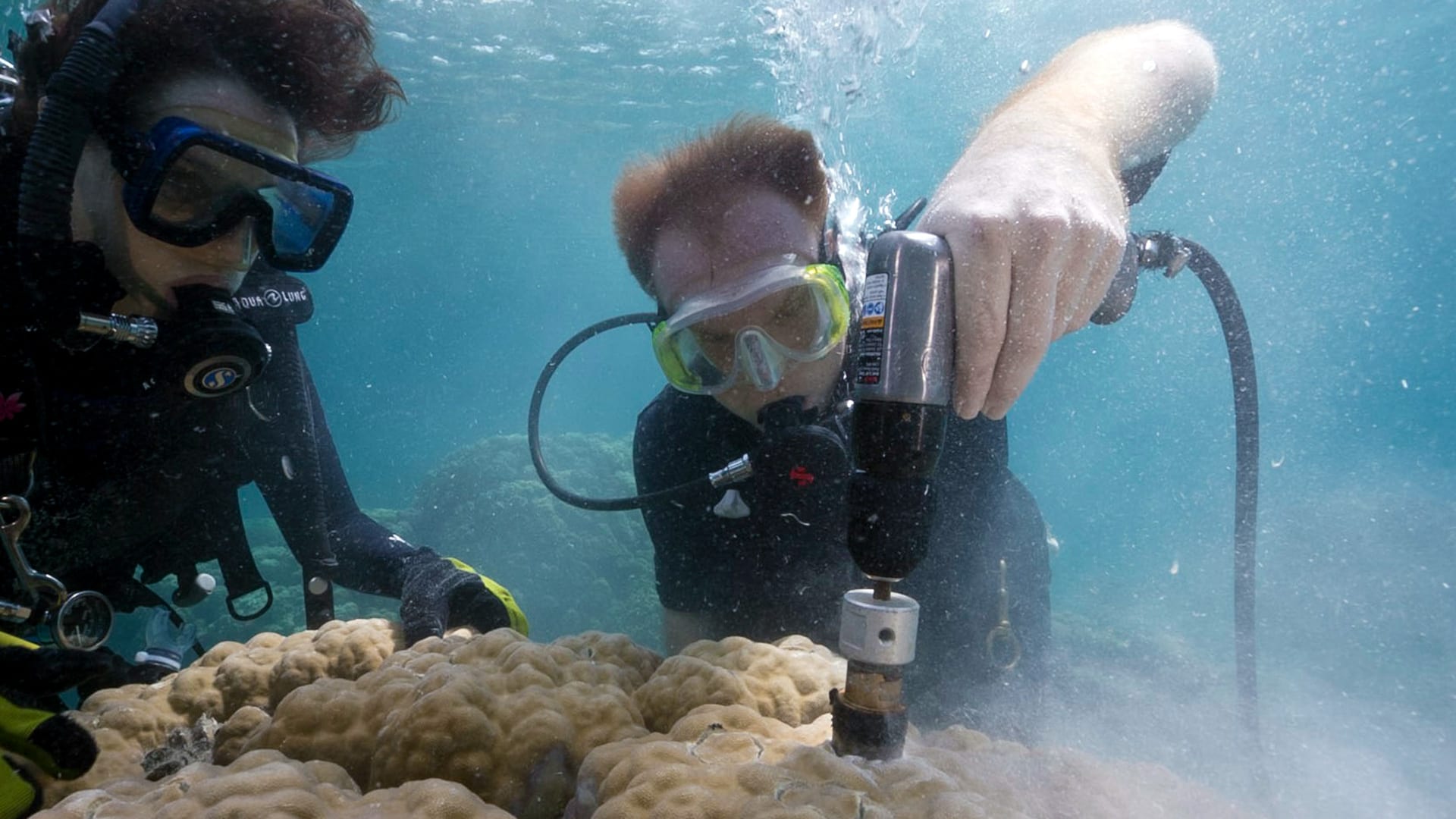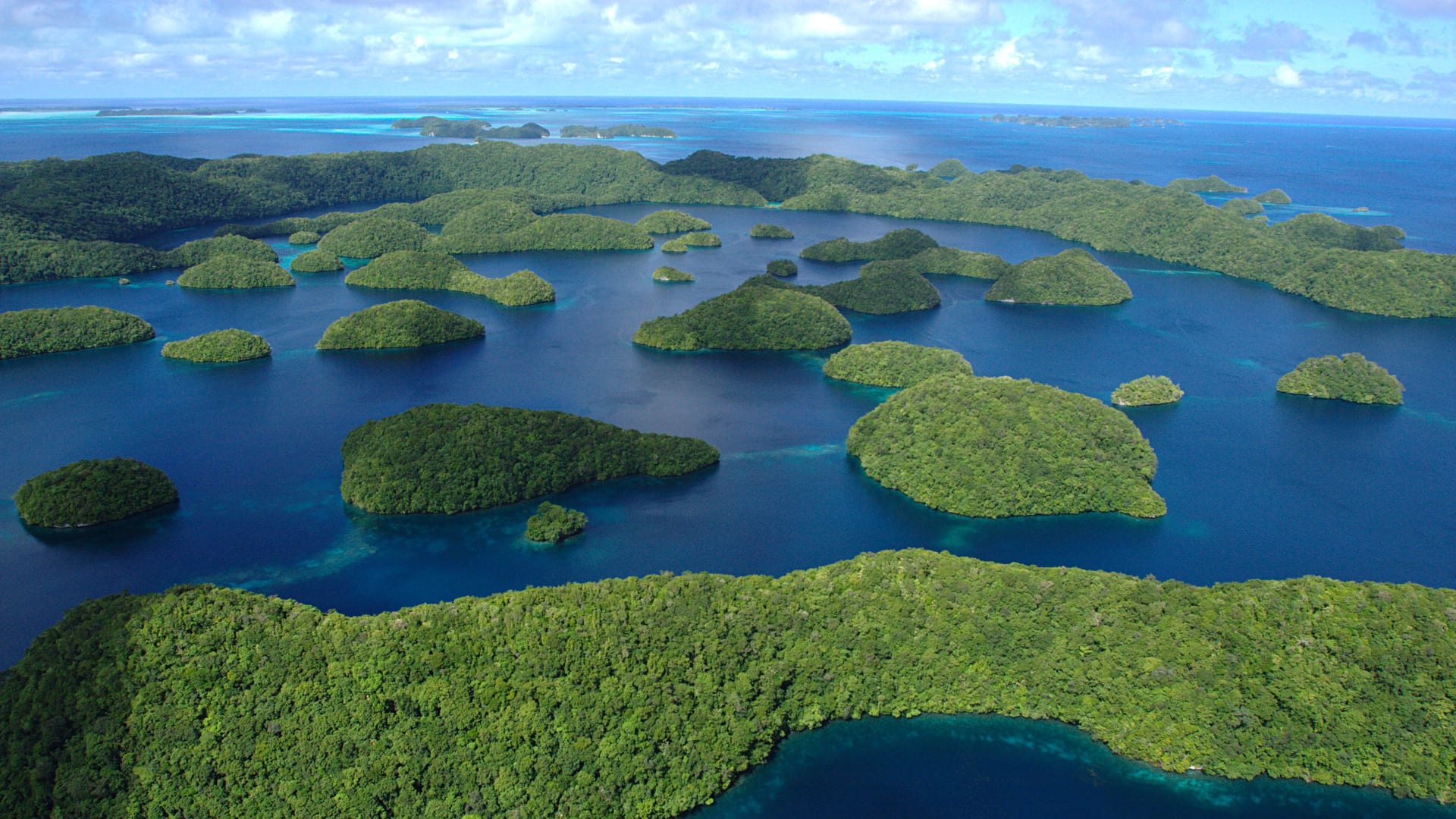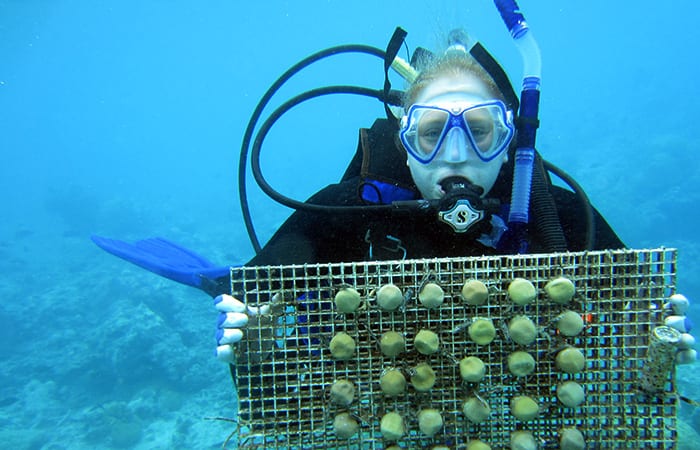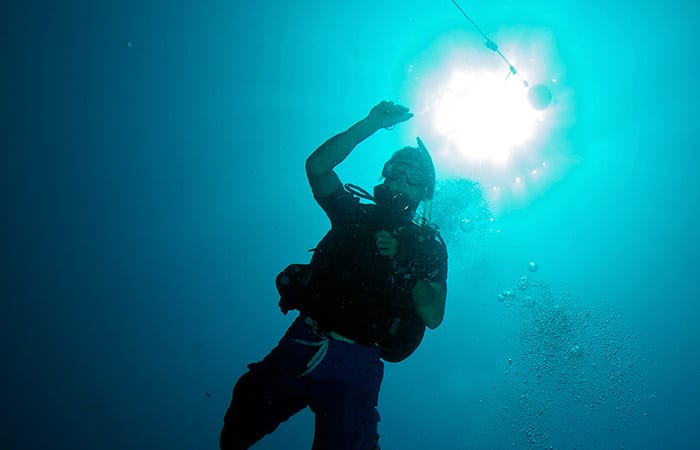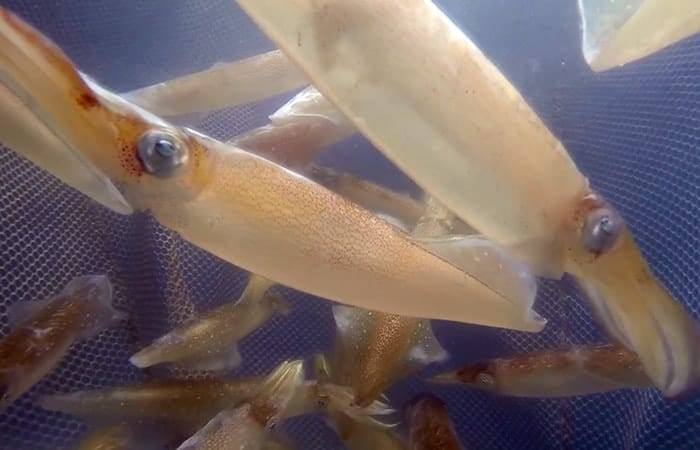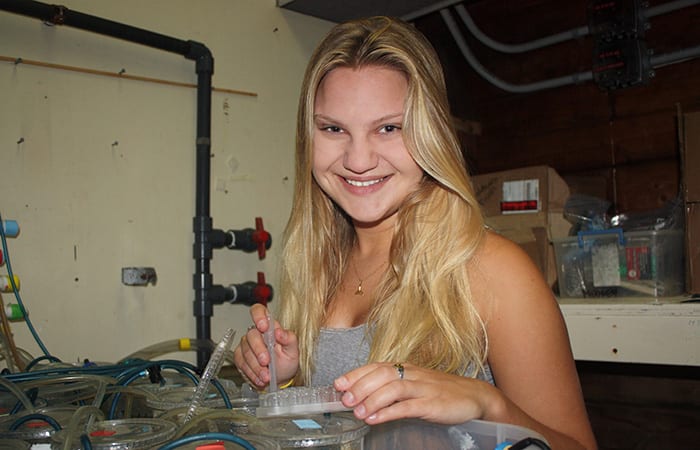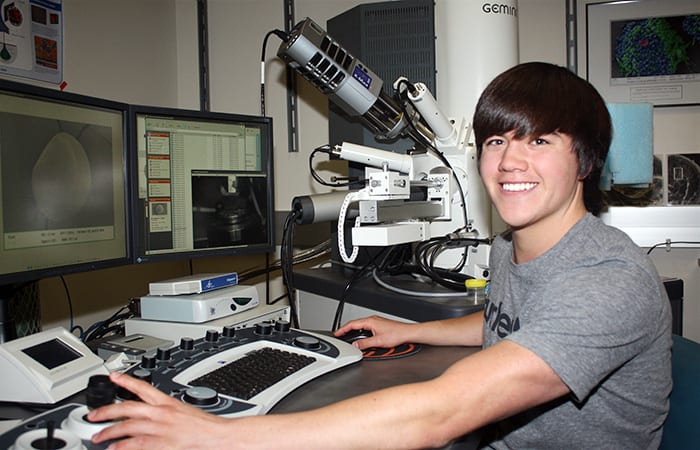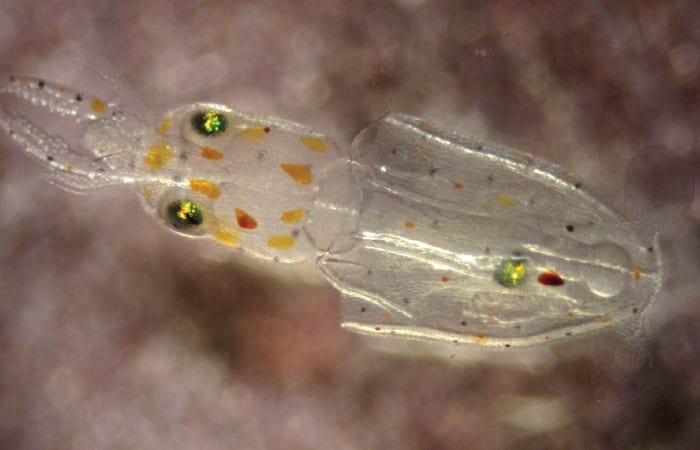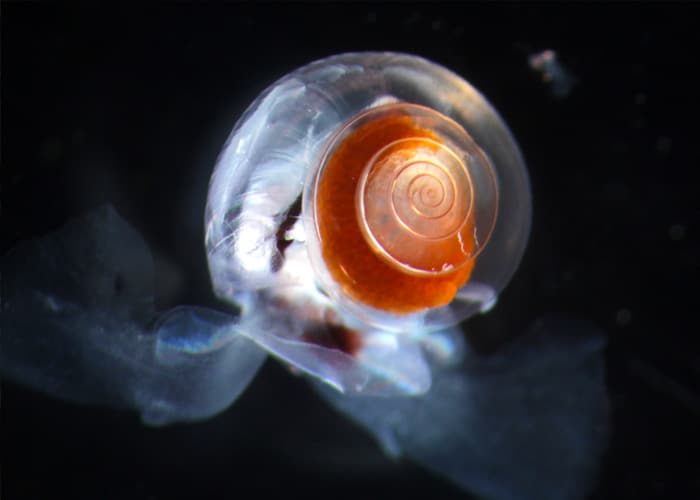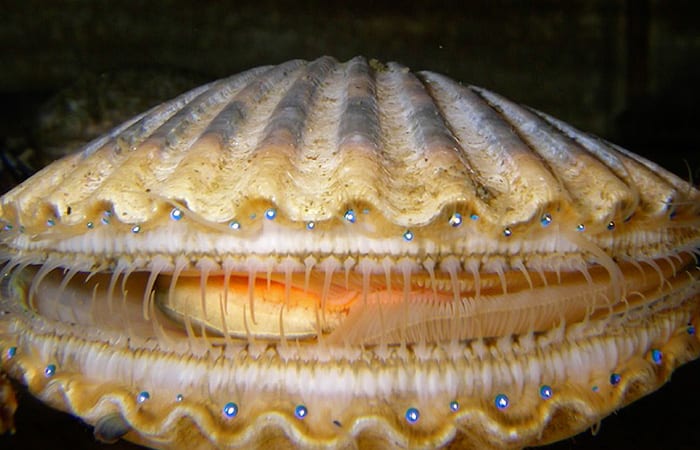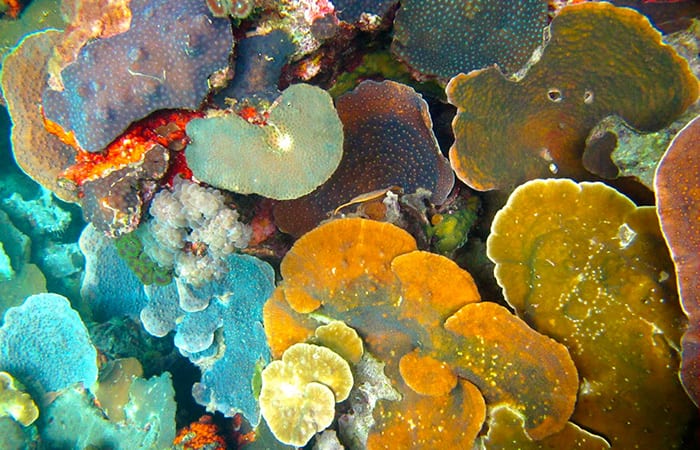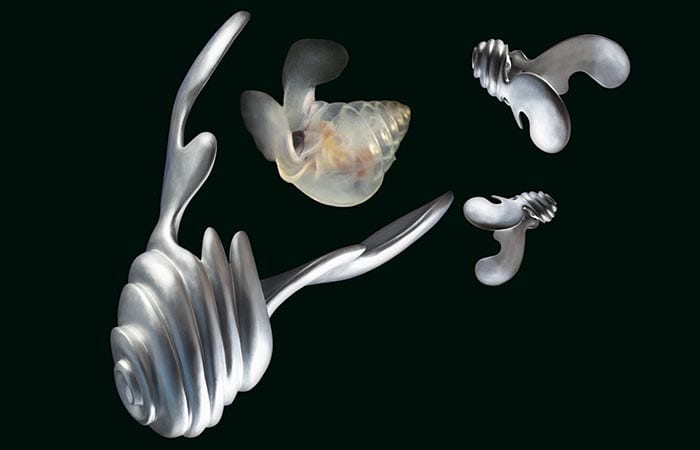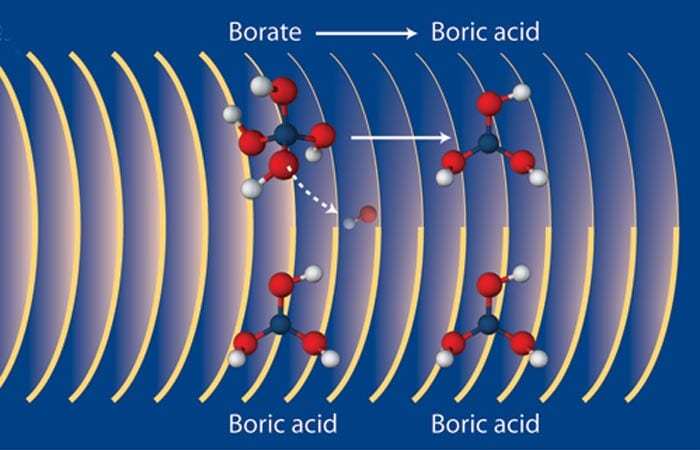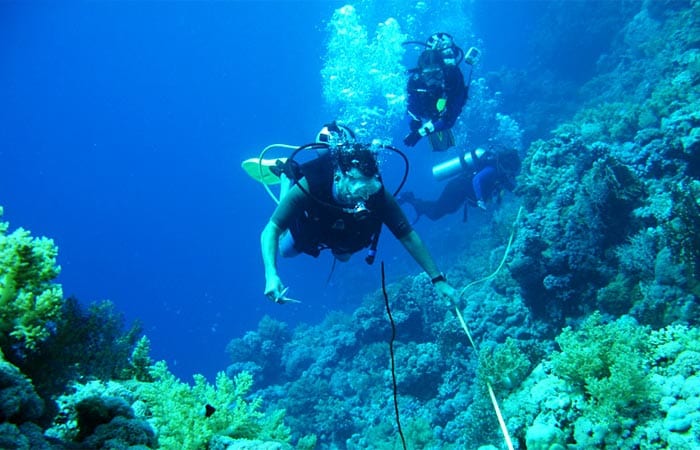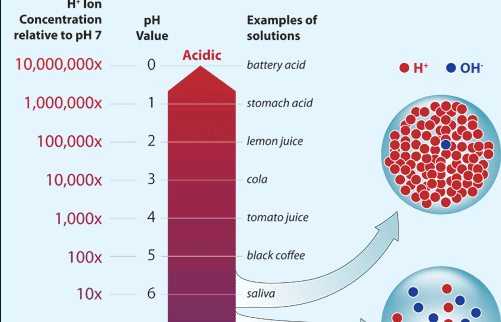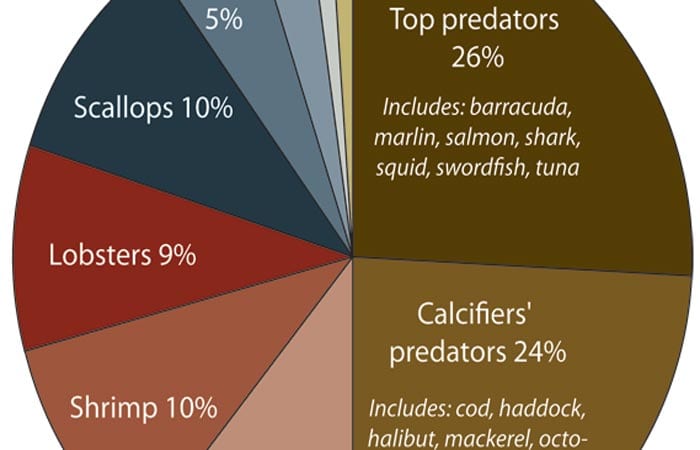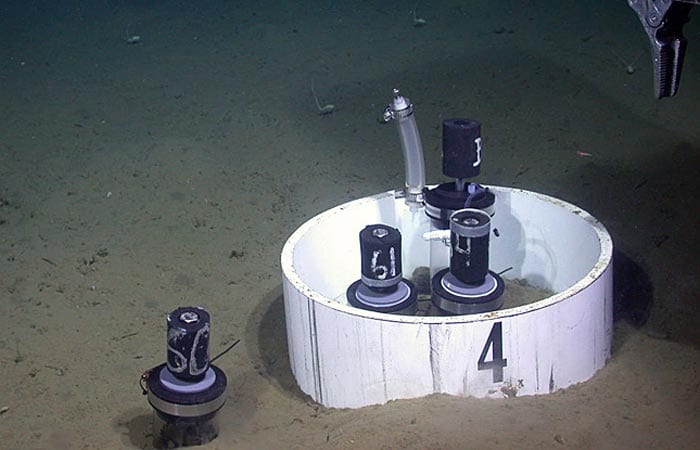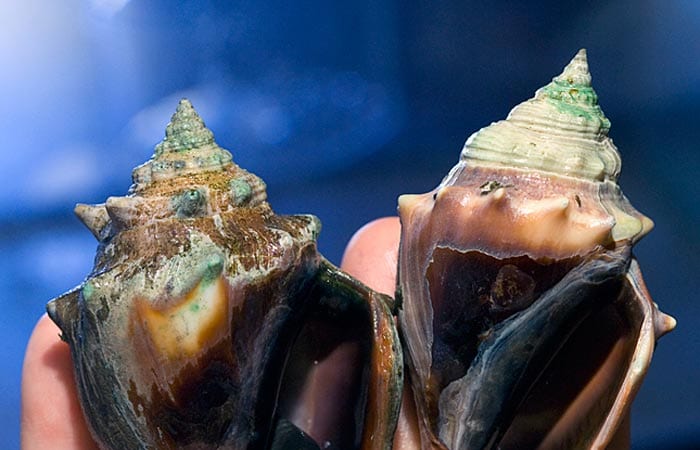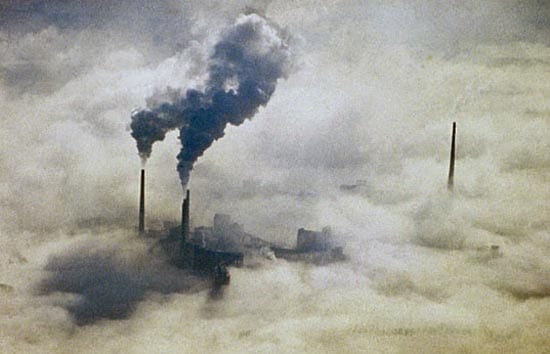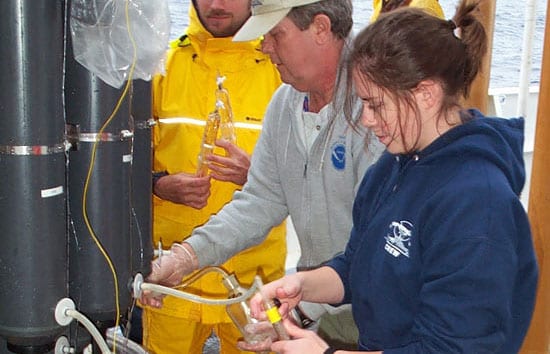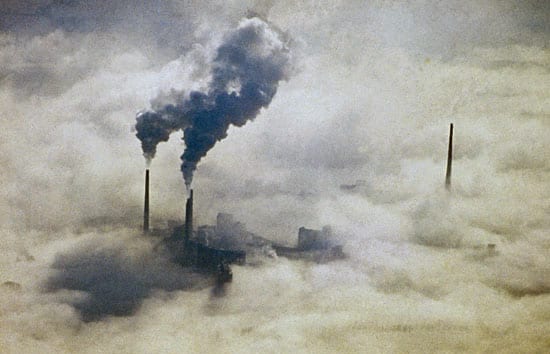Oceanus Online Archive
To Tag a Squid
How do you design a tag that can attach to a soft-bodied swimming animal and track its movements? Very thoughtfully.
Read MoreHow Do Corals Build Their Skeletons?
WHOI scientists discovered precisely how ocean acidification affects coral skeletons’ a factor that will help scientists predict how corals throughout the world will fare as the oceans become more acidic.
Read MoreSearching for ‘Super Reefs’
Some corals are less vulnerable to ocean acidification. Can the offspring from these more resilient corals travel to other reefs to help sustain more vulnerable coral populations there?
Read MoreCoral Crusader
Graduate student Hannah Barkley is on a mission to investigate how warming ocean temperatures, ocean acidification, and other impacts of climate change are affecting corals in an effort to find ways to preserve these vital ocean resources.
Read MoreHidden Battles on the Reefs
A new study led by WHOI scientists shows how changing ocean conditions can combine to intensify erosion of coral reefs.
Read MoreIs Ocean Acidification Affecting Squid?
The rise in carbon dioxide in the ocean from fossil-fuel burning may have insidious impacts on marine life.
Read MoreSwimming in Low-pH Seas
Researchers knew that squid raised in acidified water developed abnormal balance organs. To find out whether the young squid could still balance and swim normally, Summer Student Fellow Doriane Weiler mapped their movements.
Read MoreScallops Under Stress
Like other marine species, scallops face multiple climate change-related problems. Summer Student Fellow Cailan Sugano studied how scallops respond to acidification and lack of foodâand whether extra food can help them resist damage due to more acidic seawater.
Read MoreCan Squid Abide Ocean’s Lower pH?
To most people, squid are calamari: delicious when fried. But to WHOI researchers Max Kaplan and Aran Mooney, squid are another reason to be concerned about ocean acidification.
Read MoreSassy Scallops
MIT-WHOI Joint Program graduate student Meredith White examined how increasingly acidic ocean waters affect scallop shells in their critical early stages of development.
Read MoreA Quest For Resilient Reefs
Anne Cohen’s forte is corals. From the skeletons of massive corals, she has extracted long-term records of changing ocean and climate conditions. In lab experiments and expeditions, she is investigating…
Read MoreExhibit Spotlights Sea Butterflies
Artist Cornelia Kubler Kavanagh is passionate about exploring the ocean’s great unknowns. Via her latest work, she has found a kindred spirit in Gareth Lawson, a biological oceanographer at Woods…
Read MoreWill More Acidic Oceans Be Noisier?
In 2008, a group of marine chemists raised a red flag: As the ocean becomes more acidic over the next century, they said, noise from ships will be able to…
Read MoreSmall Drop in pH Means Big Change in Acidity
FEATURED IN: “The Socioeconomic Costs of Ocean Acidification” One of the most common negative responses Sarah Cooley gets when she speaks to community groups about ocean acidification is, “What do…
Read MoreThe Socioeconomic Costs of Ocean Acidification
The increasing acidification of the oceans is measured in pH units, but its impacts on people will be measured in dollar signs, says Sarah Cooley. Commercial and recreational fishing, tourism,…
Read MoreShould We Inject Carbon Dioxide into the Deep Ocean?
One proposed strategy to offset rising levels of greenhouse gases in our atmosphere is to capture carbon dioxide (CO2) emissions from fossil-fuel-burning power plants and pump them into the ocean…
Read MoreOcean Acidification: A Risky Shell Game
A new study has yielded surprising findings about how the shells of marine organisms might stand up to an increasingly acidic ocean in the future. Under very high experimental CO2…
Read MoreThe Oceans Feel Impacts from Acid Rain
The release of sulfur and nitrogen into the atmosphere by power plants and agricultural activities is making seawater more acidic, especially in coastal waters, according to a study published September…
Read MoreWHOI Scientists Testify to Congress
Marine geochemist Scott Doney and marine policy specialist Porter Hoagland traveled to the nation’s capital this spring to inform Congress about critical ocean issues: the effects of climate change and…
Read MoreHow Long Can the Ocean Slow Global Warming?
It is 4:30 a.m., far from land. A group of scientists clad in bright yellow foul-weather gear gathers in the open bay of a research ship. They wait in the…
Read MoreEarth Can’t Soak Up Excess Fossil Fuel Emissions Indefinitely
Earth?s land and oceans have been soaking up the excess carbon Earth?s land and oceans have been soaking up the excess carbon dioxide that humans have pumped into the atmosphere by burning fossil fuels. But there are limits.
A new-generation computer model indicates that the capacity of land and ocean to absorb and store the heat-trapping greenhouse gas will reach its peak by the end of the century?removing a brake that has been tempering the effects of global warming.
